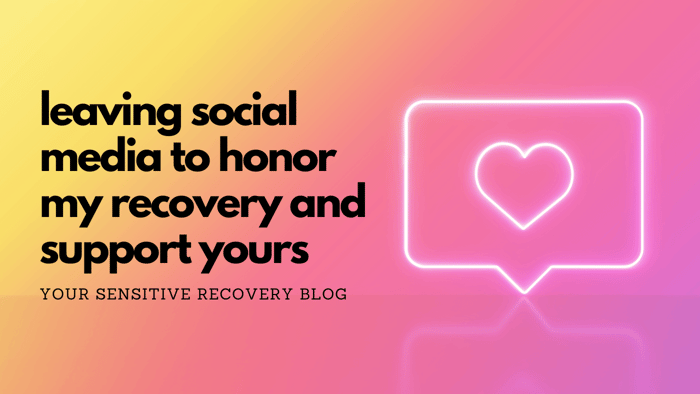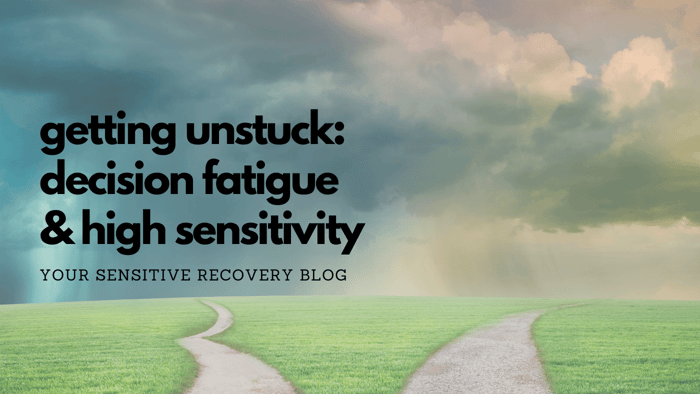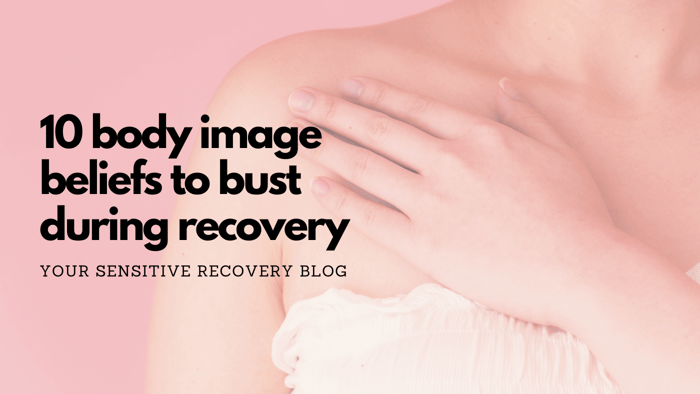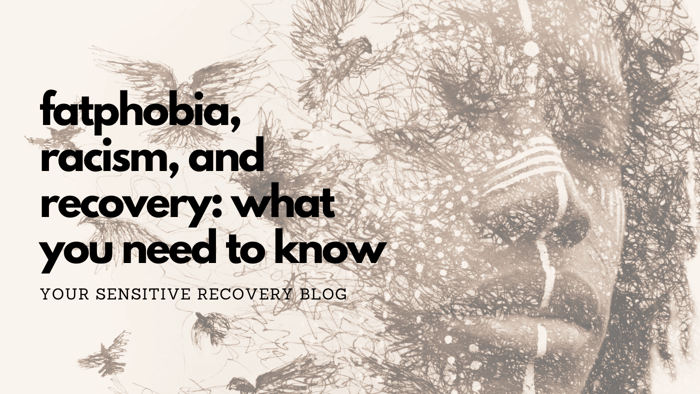I was a young adult when social media entered my life. Back then, it was simple and fun - a way to connect with close buddies, share casual updates ("Watching Top Gun in my dorm room - come on by!") and grainy photos of our latest shenanigans. But over the past two decades, as social media became less about connection and more about competition and endless distraction, my feelings toward it shifted dramatically.
As I used it more to promote my business, I began to notice something unsettling: my relationship with social media was starting to echo the patterns of my old eating disorder; an unhealthy fixation on external validation, relentless comparison, and the overwhelming drive to keep up. I know I’m not alone in this. Something had to change.
The decision to leave social media wasn't easy to make, but I'm doing it to honor my recovery, realign with my values as a mental health provider, and offer others the most authentic support I can.This post is about what led me to this point, how it's been going, and how I'm shaping a healthier, more sustainable path for myself. I'm not here to scare anyone with frightening statistics about social media and mental health, nor to shame anyone who stays on the apps - because you do you! However, if I can inspire a pause...a moment to consider your own relationship with social media, then that's great.
Once Upon a Social Media: It Used to Be Fun
Twenty years ago (TWENTY!) I joined a new website just for college students called Facebook. It was a natural step, after having spent a few years learning basic coding to decorate my MySpace page. But with Facebook, I could now poke my friends (in hindsight - this is just weird), and I could easily share photos from my first digital camera. Wow!
It was the beginning of a new era. The Social Media Era.
Maybe you also remember when social media was actually social - when it used to feel meaningful and enjoyable. It's been a long time since it felt that way for me. I was finding more and more that social media was feeling manipulative, transactional, and shallow.
The Dark Side: Echoes of My Eating Disorder
I've known, subconsciously, for quite some time that my relationship with social media was not great. It also wasn't terrible, which is how I’ve managed to keep convincing myself to stay. I didn't pick up my phone and scroll in the presence of other people, I was able to get my daily tasks taken care of without a problem... so it wasn't really a big deal, right? (This is awfully familiar to how I used to justify my disordered eating.) But then one day the problem of it all slapped me in the face.
A Dangerous Numbers Game
Chasing followers, shares and likes felt too similar to how I once chased validation through different numbers: calories and pounds. Both were dangerous games, and none of these numbers could measure my true worth, or anybody’s.
I thought back to a time in my eating disorder recovery when I promised myself I'd never again use numbers to define my worth...and here it was happening again.I was seeking validation from apps! Maybe you think that as a therapist, I should have known better. But that's why I'm sharing this - you can "know better" and still fall into the same trap as everyone else. Social media has kept me in a vicious “compare-and-despair” cycle with other therapy professionals and "mental health influencers" who appeared to be crushing it in their careers.
I kept telling myself that I didn't have what it took to be successful in the social media arena. (And did I even want that to be how I defined success?) Spoiler Alert: It turns out, I heavily resisted the work it takes to be super visible on these apps because my body KNEW before my mind that it simply was not healthy for me.
Highly Sensitive and Highly Susceptible
As a Highly Sensitive Person, I am highly susceptible to being overstimulated, and social media pushed me into overstimulation so often that I stopped recognizing when it was happening. As my time on the apps increased, my ability to focus and concentrate tanked. I was more easily irritated, and the quiet downtime that I used to look forward to was becoming difficult and uncomfortable.
Social media discouraged me from going at my own pace, making it feel like I had to stay constantly plugged in. This, of course, is terrible for our mental health.It's not just Highly Sensitive People who are susceptible to the negative effects of social media. That's clear. It was becoming harder for me to justify promoting my mental health business on these apps. Even though I was providing helpful, recovery-oriented content, I was still playing a role in keeping people on apps that have been proven to really harm many of us.
Working My Way to a Decision
I was tired of getting so angry at Instagram. Here I was spending my valuable time crafting some really helpful, empowering posts...only to end up feeling punished by the app. Yes, actually punished.
The algorithm seemed to chastise me for stepping away from the app or for not loving reels and stories, or the latest music clips...and it did so by burying my content. Even my close friends reported that my posts rarely showed up in their feeds anymore. I tested spending more time scrolling and sure enough, my "reach" would increase. Bleh.
I was also tired of feeling manipulated into buying things that I suddenly NEEDED (even though 5 seconds ago I definitely did not). Every time I saw an ad on my browser for an item I had just seen mid-scroll on Facebook or Instagram I felt invaded.
I was desperate for a solution that didn't involve me deleting these apps completely.On the way to true acceptance of a problem, we often hit something called The Bargaining Phase, where we try to figure out a way around the problem without actually facing it.
Tactical Failures: What I Tried
- Deleting the Facebook app and only using it on my computer. This had the opposite effect I was going for because I spent even more of my "work time" on that site.
- Instagram "Time Limits." Ha! Laughable. That little notification would come up saying, "Maybe it's time to take a break" and I was swiping away from it in milliseconds.
- Only getting on socials to share my blog post from that week. This one helped...but of course, my engagement stats were even more abysmal... causing more unnecessary anger.
- Unfollowing every account that wasn't that of an actual real-life friend. This was interesting because I'd check my feed every few days and find no new posts - just ads. (Wow, and I thought I was staying connected with these apps.)
The last straw was when I read about Meta's decision to stop fact-checking. I am sick and tired of contributing to the insane wealth of tech billionaires who are choosing not to protect their users (a.k.a. their real products). I had already ditched Amazon a few months earlier, and on a whim (but also not at all), I completely deleted that 20-year-old Facebook account.
Life Beyond the Algorithm
It's been a little over a week since then. Instagram's head is resting on the chopping block now. But as of today, I'm planning to leave that profile up (along with all the hard work I've done for it over the years). Maybe there are still ways it can help. I'm open to my thoughts and feelings changing about that though, and hey, I may eventually demolish that profile too.
How It's Going
I've been checking out Bluesky (it’s lovely), and sharing my blog posts on Pinterest. Both of these sites include the numbers thing, so I will have to pay attention to that. Those things may or may not continue. It remains to be seen.
I've mostly felt extremely empowered since deleting Facebook. Only a few momentary experiences of regret. You know...that's not really it. It's more accurate to say I've experienced the fear of regret.I fear that I won't find replacements for the therapist groups I participated in, or that I won't be able to check and see what's happening in our little town...but I'm really ok. I'm just fine. Along with that Fear Of Missing Out, comes the Joy Of Missing Out.
Boredom is Good For Us
We've all forgotten how to handle boredom. And we need to be reminded! Boredom used to be when our creativity would tap us on the shoulder saying, "Hey, I've got an idea!" Or it was when we'd look around at all the projects we'd been putting off and think, "Now is as good a time as ever!" I look back on summer days in the 90s when I felt "bored out of mind"...because those times were actually peaceful, and there was room for anything.
I was more intentionally connected before social media, more productive, and more content.What about you? How does social media make you feel?
If your relationship with social media has been weighing on you, I invite you to pause and consider whether or not it aligns with your values and really supports your well-being. You deserve a truly fulfilling life - not one dictated by the algorithms. Here's to honoring your needs and finding joy offline."
It's my Post-Algorithm Era. And I'm looking forward to it.
😌
✨ Josie Munroe, LMFT is a licensed therapist and owner of JosieMunroe.com and Your Sensitive Recovery. As a recovered clinician and Highly Sensitive Person, she loves supporting others on their journeys to form new, empowered relationships with food, their bodies, and their sensitivity. Join the newsletter for a weekly boost of hope and inspiration. You deserve a recovery that works for you! ✨





